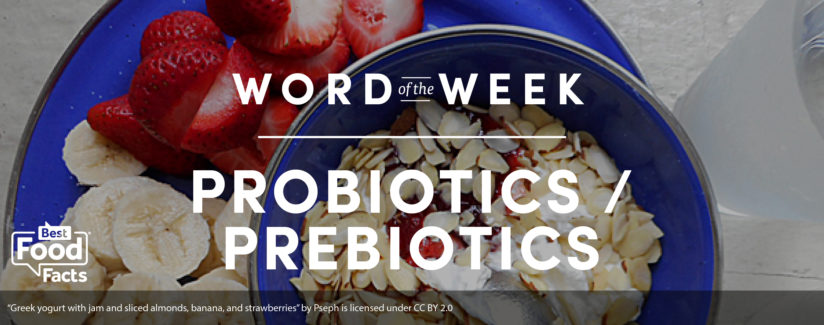
Word of the Week: Probiotics/Prebiotics
01/20/2016
We hear a lot about probiotics and their benefits to human health. But what exactly are probiotics? And what are prebiotics?
Prebiotic: Noun. A nondigestible food ingredient that promotes the growth of beneficial microorganisms in the intestines (like probiotics!). Examples of prebiotics include whole grains, fortified foods and beverages, and a variety of fruits and vegetables.
Probiotic: Noun. A substance that stimulates the growth of microorganisms, especially those with beneficial properties (such as those of the intestinal flora). Examples of probiotics are most yogurts, other cultured dairy products (like kefir), and some fermented foods (like tempeh, kim chi and sauerkraut).
Used in a sentence:
When probiotics and prebiotics are combined, they are said to be interdependent on one another or symbiotic. Fermented dairy products, such as yogurt and kefir, are considered symbiotic because they contain live bacteria (probiotic) and the fuel (prebiotic) they need to thrive.
The image “Greek yogurt with jam and sliced almonds, banana, and strawberries” by Pseph is licensed under CC BY 2.0.

























